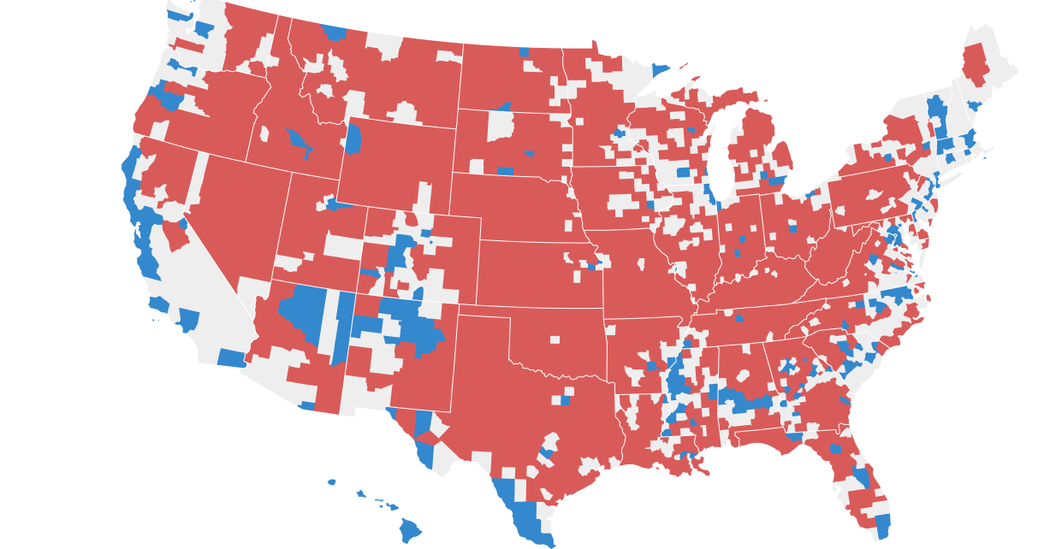If there’s one thing that’s obvious about the 2016 election cycle, it’s that it was huge for outsider candidates. Besides Donald Trump’s surprise victory, Senator Bernie Sanders also led a strong insurgency against Secretary Hillary Clinton. This phenomenon led to a greater fixation on “money in politics” from the anti-establishment candidates. Democrats, especially Bernie Sanders, obsessed over the issue, while Trump’s success – despite his hostility to the political establishment and its coolness towards him – is evidence to some in the media that the issue has transcended party divisions.
It is undeniable that Trump has spoken out more boisterously against America’s campaign finance regulatory regime than any Republican in recent memory. After all, he disavowed super PACs that were independently supporting him late last year, alienated much of the Republican donor base, and even picked fights with Charles and David Koch as well as those elected officials Trump alleged were their “puppets” within the GOP. More than anything, however, a centerpiece of Trump’s political brand was his pledge to self-fund his campaign.
Indeed, Trump ended up lending about $66 million to his campaign (out of $100 million that he promised to contribute). But he also caused the RNC to panic when it discovered at the beginning of June that his campaign had not bothered to raise the money many thought necessary to run a presidential campaign on a national scale. He somewhat reversed course afterwards by signaling his approval of super PACs independently supporting his campaign, sending fundraising emails, and meeting with potential donors. By the end of the campaign, however, Clinton had outspent Trump more than 2 to 1, and the Republican National Committee had re-directed much of its spending from the presidential election to down-ballot races. None of this prevented Trump’s victory in the end.
According to the theory advanced by speech regulatory activists that “money in politics” has become a uniquely bipartisan concern, this flip flop should have earned Trump the ire of his core, anti-establishment supporters. This was clearly not the case. It seems far more likely that, as with most political issues, voters selectively embraced campaign finance-related arguments and attacks when it hurt the other side, while exonerating straying politicians whom they support.
To be sure, Trump supporters still claimed to care about this issue. A July 2016 Associated Press-GfK poll found that 63% of these individuals said they were at least somewhat more likely to back a self-funded candidate. Meanwhile, 51% said that the way presidential candidates fundraise is very or extremely important to them, while 46% of all Americans said the same.
Yet, only a paltry 13% of Trump supporters thought it was a problem that Trump changed his mind on self-funding his campaign. Among all Americans, only 16% said the reversal is a major problem, and 21% a minor problem. Quite simply, the public didn’t seem to care.
Interestingly, supporters of Secretary Clinton were less likely to embrace self-funding candidates, despite Democrats’ purported concerns about the political influence of a candidate’s backers. Just 26% said they were at least somewhat more likely to support a self-funding candidate. More than half said they consider Trump’s reversal to be a problem though, with 27% saying it is a major problem. Essentially, they were more likely to criticize Trump for deciding to seek out financial supporters than they were to vote for someone who decided not to do so.
It is possible that when the poll was conducted, respondents intrinsically associated “self-funding candidate” with Trump and responded accordingly. Supporters would find his self-funding admirable and significant, while opponents would fixate more on his reversal.
Interviews with Trump supporters confirm that they cared more about backing up their candidate than maintaining consistency on the issue. The consistent refrain was “he had no choice,” and they were quick to deflect blame to the media and Hillary Clinton:
As Trump often does, Doug McIntyre of Tampa blamed the media and the system itself. “The media has made it so damn expensive to run. That’s just the way it is.”
[…]
Some Trump fans pointed to the donations the Clinton Foundation had received from foreign countries to make the point that Trump was still better on the issue than Clinton. “I think you’re going to have to take a bit of money here and there,” said John Hosegood of Winter Haven, Fla. “At least he’s not taking money from foreign countries in exchange for favors.”
Such staunch support for Trump when confronted with a significant policy reversal indicates a simple truth about campaign finance issues in elections: although voters claim that they care about who donates to whom, their support is primarily determined by other factors. When faced with evidence that their preferred candidate does not meet their expectations, they simply shift their attention to what the other side is doing.
Much like President Obama’s 2012 assertion that he needed to embrace big money politics as necessary for effectively getting his message out, voters always assume the best intentions of their own side and the worst intentions of their opponents. Indeed, partisan identification is a persistent factor in voter attitudes.
Given the apparent comfort of Trump’s base with a campaign fueled by traditional fundraising – so long as the right people are doing it – it appears that Trump’s victory is not a sign that money in politics has become a top issue with voters.
Instead, his reversal on self-funding seems to be a triumph for the notion that, absent endless free media coverage, money is still a crucial means of sharing ideas and engaging with voters. Most importantly, the results of the 2016 election showed that votes cast matter more than money spent, and that the two do not always match.














